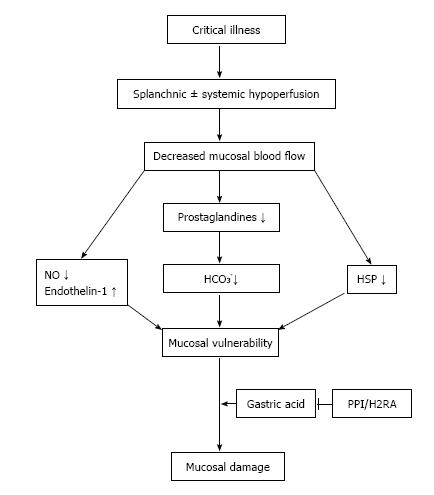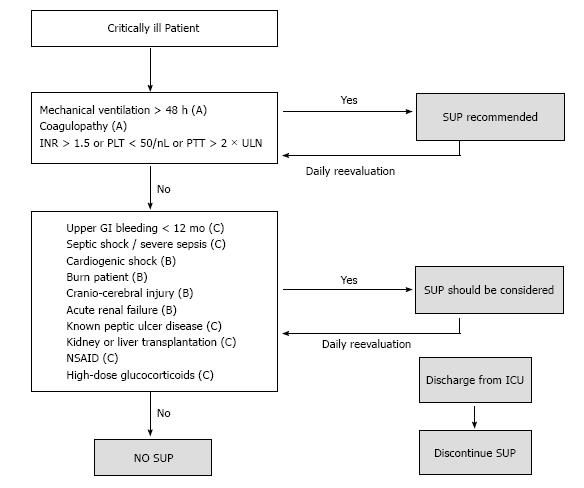Copyright
©The Author(s) 2016.
World J Crit Care Med. Feb 4, 2016; 5(1): 57-64
Published online Feb 4, 2016. doi: 10.5492/wjccm.v5.i1.57
Published online Feb 4, 2016. doi: 10.5492/wjccm.v5.i1.57
Figure 1 Pathophysiology of stress-related mucosal disease and rationale for the routine use of proton pump inhibitor/histamine 2 receptor antagonists at the intensive care unit.
NO: Nitric oxide; PPI: Proton pump inhibitor(s); H2RA: Histamine 2 receptor antagonists; HSP: Heat-shock proteins; HCO3−: Bicarbonate.
Figure 2 Proposed algorithm for stress ulcer prophylaxis.
For the different indications for SUP, the level of evidence is provided [A: Multiple randomized trials or meta-analysis, B: Single randomized or large non-randomized trial(s), C: Expert opinion or retrospective studies]. GI: Gastrointestinal; ICU: Intensive care unit; INR: International normalized ratio; NO: Nitric oxide; NSAID: Nonsteroidal anti-inflammatory drugs; PLT: Platelets; PTT: Partial thromboplastin time; SUP: Stress ulcer prophylaxis.
- Citation: Buendgens L, Koch A, Tacke F. Prevention of stress-related ulcer bleeding at the intensive care unit: Risks and benefits of stress ulcer prophylaxis. World J Crit Care Med 2016; 5(1): 57-64
- URL: https://www.wjgnet.com/2220-3141/full/v5/i1/57.htm
- DOI: https://dx.doi.org/10.5492/wjccm.v5.i1.57










